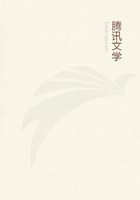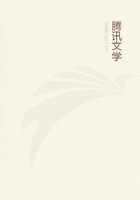Take the most commonplace of them: was Zeal-for-Truth Thoresby, of Thoresby Rise in Deeping Fen, because his father had thought fit to give him an ugly and silly name, the less of a noble lad? Did his name prevent his being six feet high? Were his shoulders the less broad for it, his cheeks the less ruddy for it? He wore his flaxen hair of the same length that every one now wears theirs, instead of letting it hang half-way to his waist in essenced curls; but was he therefore the less of a true Viking's son, bold-hearted as his sea- roving ancestors who won the Danelagh by Canute's side, and settled there on Thoresby Rise, to grow wheat and breed horses, generation succeeding generation, in the old moated grange? He carried a Bible in his jack-boot: but did that prevent him, as Oliver rode past him with an approving smile on Naseby field, thinking himself a very handsome fellow, with his moustache and imperial, and bright red coat, and cuirass well polished, in spite of many a dint, as he sate his father's great black horse as gracefully and firmly as any long- locked and essenced cavalier in front of him? Or did it prevent him thinking, too, for a moment, with a throb of the heart, that sweet Cousin Patience far away at home, could she but see him, might have the same opinion of him as he had of himself? Was he the worse for the thought? He was certainly not the worse for checking it the next instant, with manly shame for letting such 'carnal vanities' rise in his heart while he was 'doing the Lord's work' in the teeth of death and hell: but was there no poetry in him then? No poetry in him, five minutes later, as the long rapier swung round his head, redder and redder at every sweep? We are befooled by names. Call him Crusader instead of Roundhead, and he seems at once (granting him only sincerity, which he had, and that of a right awful kind) as complete a knight-errant as ever watched and prayed, ere putting on his spurs, in fantastic Gothic chapel, beneath 'storied windows richly dight.' Was there no poetry in him, either, half an hour afterwards, as he lay bleeding across the corpse of the gallant horse, waiting for his turn with the surgeon, and fumbled for the Bible in his boot, and tried to hum a psalm, and thought of Cousin Patience, and his father, and his mother, and how they would hear, at least, that he had played the man in Israel that day, and resisted unto blood, striving against sin and the Man of Sin?
And was there no poetry in him, too, as he came wearied along Thoresby dyke, in the quiet autumn eve, home to the house of his forefathers, and saw afar off the knot of tall poplars rising over the broad misty flat, and the one great abele tossing its sheets of silver in the dying gusts; and knew that they stood before his father's door? Who can tell all the pretty child-memories which flitted across his brain at that sight, and made him forget that he was a wounded cripple? There is the dyke where he and his brothers snared the great pike which stole the ducklings--how many years ago?-















